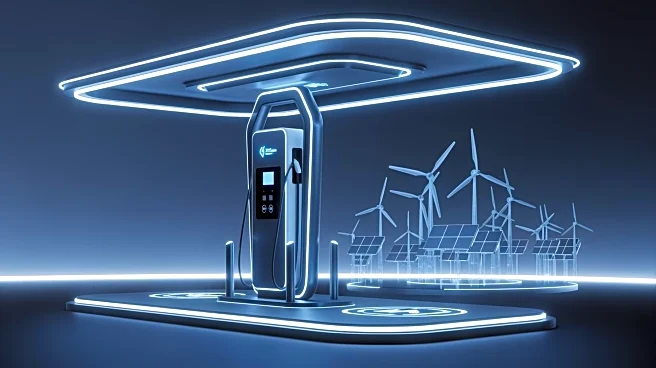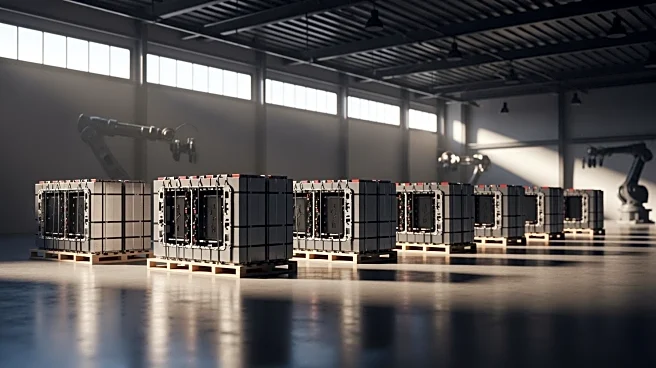What's Happening?
Chief Minister Devendra Fadnavis has inaugurated India's first Electric Highway Corridor between Mumbai and Pune, marking a significant step in Maharashtra's green mobility roadmap. This initiative aims to electrify major national highways within three
years, contributing to India's Net Zero Goal. At the launch event, Fadnavis emphasized the state's commitment to long-term EV and clean fuel strategies, announcing plans to replicate the corridor model across other transit routes. Additionally, Blue Energy Motors unveiled its first heavy-duty electric truck equipped with fast battery-swapping technology, enhancing operational uptime for large-scale logistics. Blue Energy Motors has signed a memorandum of understanding with the Maharashtra government to invest INR 3,500 crore in a manufacturing facility near Chakan, Pune, which will produce up to 30,000 electric and LNG-powered heavy-duty trucks in its initial phase.
Why It's Important?
The inauguration of the Electric Highway Corridor and the launch of Blue Energy Motors' electric truck represent a major milestone in India's transition toward sustainable freight mobility. This development is crucial for reducing emissions and advancing India's Net Zero Goal. The investment in the manufacturing facility near Pune is expected to boost local economies and create jobs, while the fast battery-swapping technology addresses one of the key challenges in electric freight logistics—charging time. By fostering innovation in EV technology and infrastructure, Maharashtra is positioning itself as a leader in sustainable transportation, which could have significant implications for India's energy policy and economic growth.
What's Next?
Maharashtra plans to replicate the Electric Highway Corridor model across other transit routes, further expanding the state's EV infrastructure. Blue Energy Motors aims to localize critical EV components currently imported from China, enhancing India's self-reliance in the EV sector. The company plans to establish 1,200 battery-swapping stations nationwide, with each station costing around USD 0.5 million. This expansion is expected to facilitate the widespread adoption of electric trucks, potentially reducing operational costs to approximately INR 25 per kilometre, nearly half the cost of diesel trucks. As battery technology advances, the range of electric trucks could extend to 400 km per charge, enabling nationwide adoption of emission-free freight systems.
Beyond the Headlines
The development of the Electric Highway Corridor and Blue Energy Motors' investment in EV infrastructure highlight the growing importance of sustainable innovation in India's transportation sector. This shift towards electric mobility not only addresses environmental concerns but also aligns with India's vision for Atmanirbhar Bharat—a self-reliant nation. The localization of EV components could reduce dependency on imports, fostering domestic manufacturing capabilities. Moreover, the Energy-as-a-Service model proposed by Blue Energy Motors integrates electricity, battery costs, and operations into a single per-kilometre rate, offering a cost-effective solution for freight operators.
















